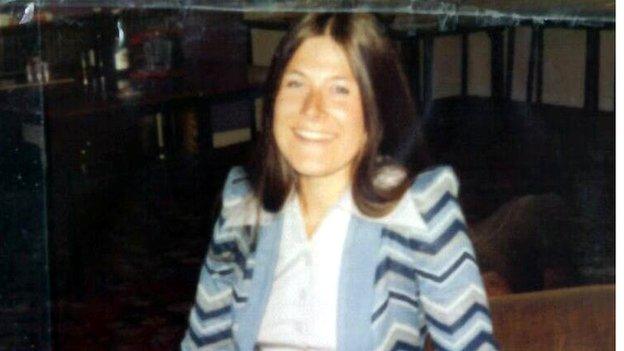Brenda Page murder: The killer who thought he was too clever to be caught
- Published
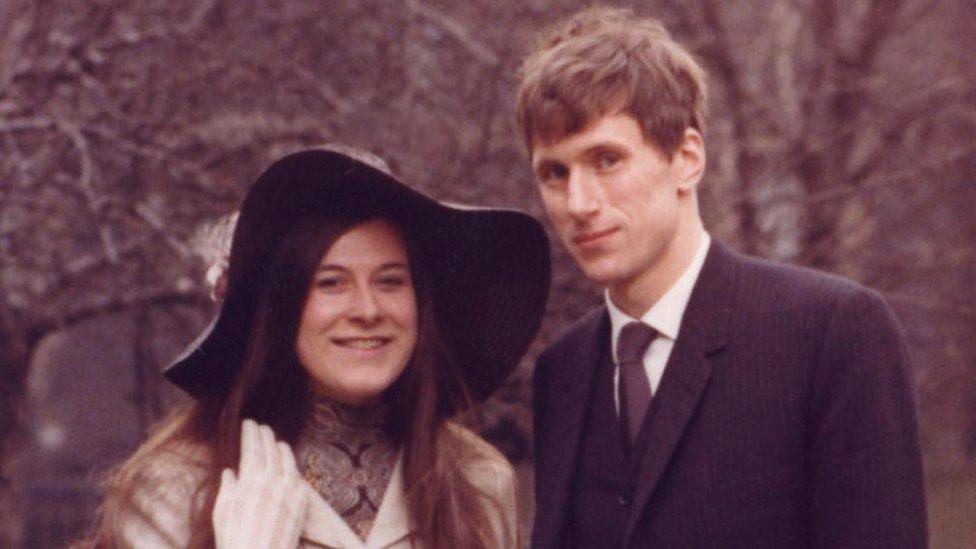
Brenda Page said she was scared of Christopher Harrisson, who she met in 1971
A man who evaded justice for more than 40 years after murdering his ex-wife thought he was "too clever" to be caught, according to a detective who helped finally secure his conviction.
Christopher Harrisson killed 32-year-old Brenda Page in Aberdeen in 1978, a year after the couple were divorced.
Det Insp James Callander said Harrisson thought he had got away with it - but implicated himself in an interview.
He was found guilty of Ms Page's murder 45 years after the killing.
Now a revealing new BBC documentary - Murder Trial: The Killing of Dr Brenda Page - has examined the case, from Harrisson's arrest in 2020 through to his trial and ultimate conviction at the High Court in Aberdeen.
It captures the moment officers forced entry to his home, as he told them: "She wasn't murdered here".
The body of Ms Page, a genetics expert, had been found on a blood-stained bed in her home in Aberdeen on 14 July 1978.
Police forced entry to Harrisson's home after the case was reinvestigated
Harrisson, a retired research scientist, was a suspect. He was apprehended in the hours after the murder and interviewed and a report was submitted to prosecutors.
The murder dominated news headlines, as police continued to seek key witnesses or a vital piece of evidence.
But there was no breakthrough, and it was decided there was insufficient evidence to take him to court.
Dr Page's death became a cold case. Then, 37 years after the killing, police were instructed to reinvestigate in 2015.
Semen found on a duvet in Dr Page's flat in Allan Street matched her former husband's DNA profile and was said by forensic expert to be 590 million times more likely to be from him than another male.
Harrisson was brought in for questioning on 27 March 2020 and maintained he had nothing to do with his ex-wife's death.
But more than four decades after her death, he was charged with murder.
In March 2023 he was found guilty of murder after a 10-day trial. Harrisson was jailed for life and ordered to serve at least 20 years before he can apply for parole.
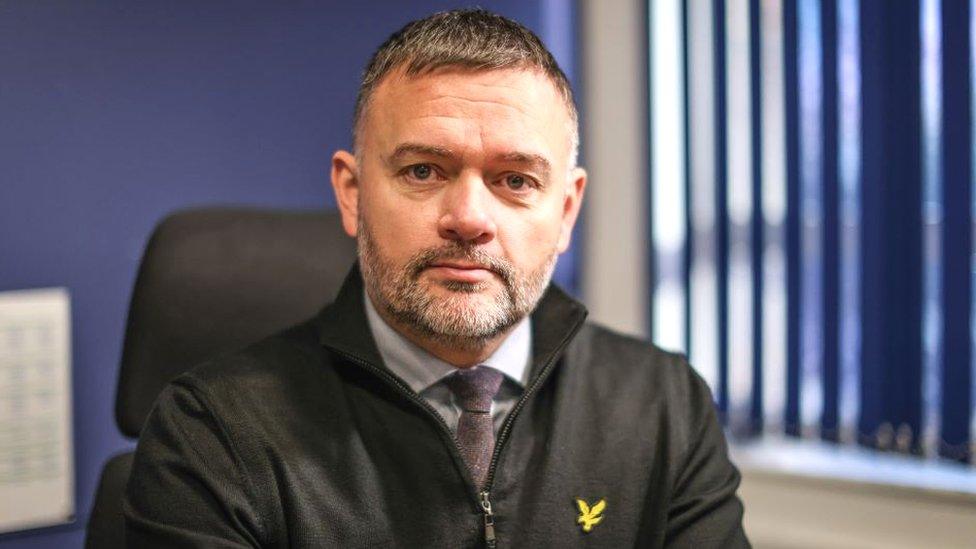
Det Insp James Callander said attitudes had changed in the intervening years
Det Insp James Callander, who was the senior investigating officer, told BBC Scotland News that Harrisson had not expected to be arrested more than 40 years after the killing.
"I think his intelligence was part of his downfall because he thought he was too clever and got away with it, even 40-odd years on," he said.
"You can see that in the police interview. He tied himself in knots to a certain degree but didn't really realise it.
"And he just thought his intelligence was far greater than anybody else, and he could get away with it - and that obviously wasn't the case because when you look at the entire interview he implicates himself. There's no doubt about that."
The two young scientists had married in 1972, but separated four years later. Dr Page got a flat of her own and the couple divorced in 1977.
Dr Page had complained of being unhappy in the marriage and said she was scared of her husband.
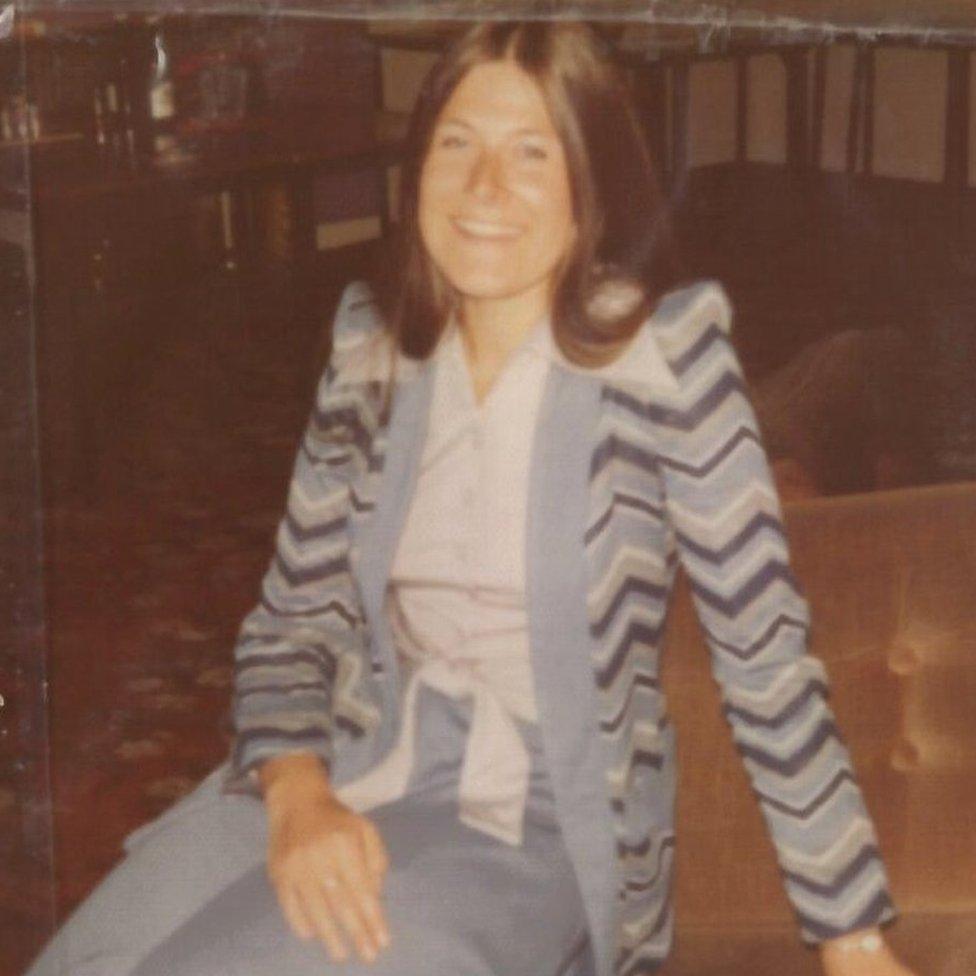
Brenda Page was murdered in 1978
Asked what changed to finally get the case to court, Det Insp Callander said: "I think it quite simply comes down to a better understanding of coercive control and domestic abuse."
He said domestic abuse was often tolerated in the 1970s and 1980s.
"That wasn't just in the family setting, that extended to the police and the Crown Office and to society in general," he said.
"So thankfully that has moved on massively. And that was probably the big thing that got this over the line, was a better understanding."
He said the police who investigated the murder in 1978 had done "as good a job as we would have done today".
"It really just came down to society. Did society fail Brenda in 1978?" he added.
"Possibly it did, but you are looking at it from a different perspective in 2024."
Dr Page's nephew Chris Ling, 59, attended every day of Harrisson's trial.
He said: "It's such a strange feeling, coming to court, and the guy who is accused of murdering Auntie Brenda is there walking among us. He's just there you know.
"That is a really hard feeling to be honest with you. And nothing prepares you for that moment when you see him.
"He's so different from what I remember him. He looks so old... it makes you think what Brenda would be like now."
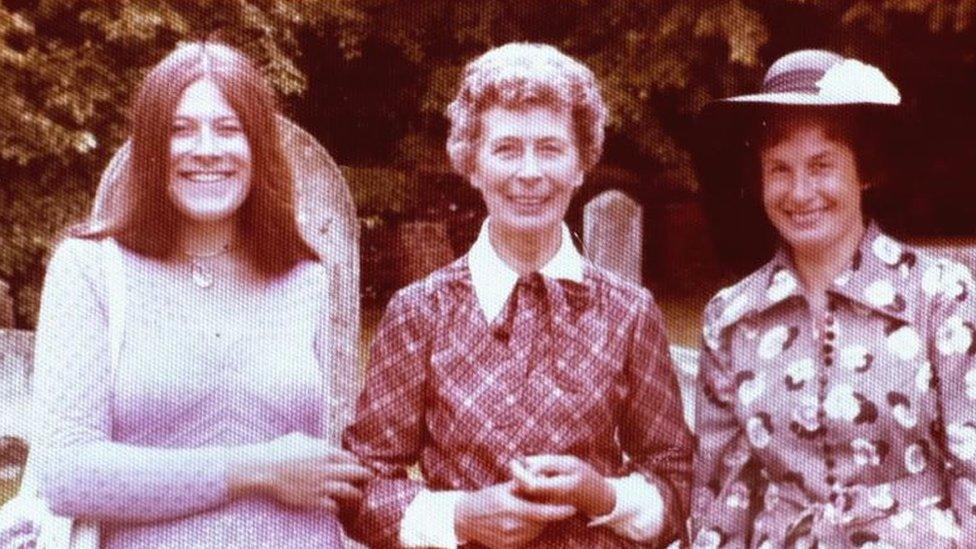
Brenda Page, on the left, is pictured with her mother and sister
Brenda Page's sister, Rita Ling, 88 said that she had spent years hoping that police would be able to get the proof needed to convict her killer.
"We kept getting little flurries of interest as the DNA advanced," she said.
"They did try, and we are so grateful for that, but you don't take anything for granted do you?
"You just hope that eventually something will come of it."
She added that she had missed her sister for "such a long time".
Ms Ling said: "There's a picture of us three at a wedding, there's mother in the middle and Brenda one side and me the other.
"And I thought that was a nice trio and we did things together. It's just an empty space."
The first episode of Murder Trial: The Killing of Dr Brenda Page will be broadcast on the BBC Scotland channel at 22:00 on Tuesday 23 January and on BBC Two on Thursday at 21:00. It will be available on BBC iPlayer from Tuesday.


Related topics
- Published9 March 2023

- Published3 March 2023
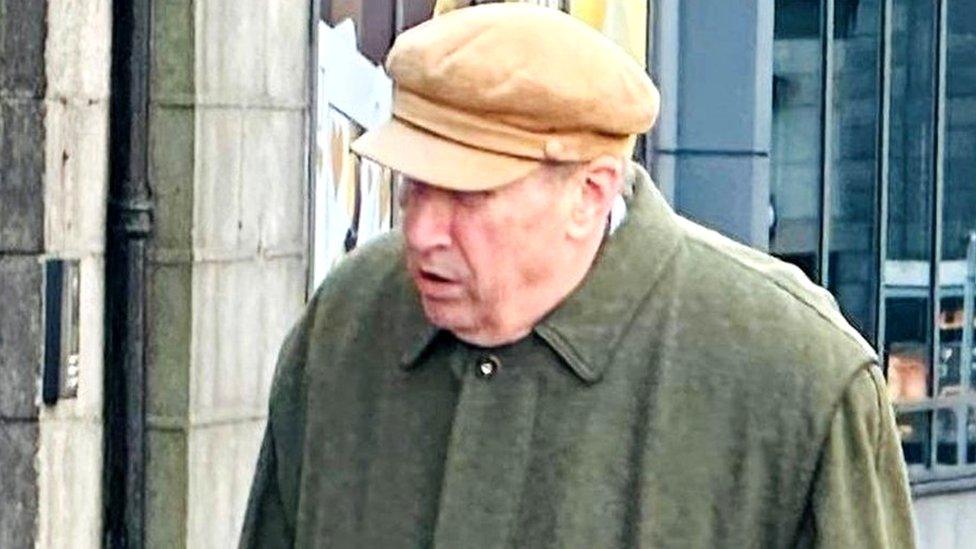
- Published27 February 2015
